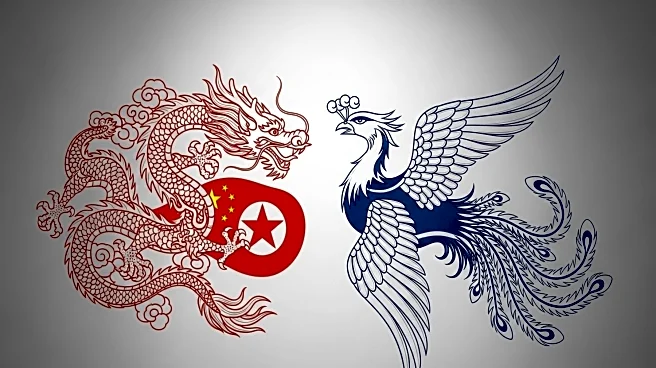What's Happening?
North Korean leader Kim Jong Un will attend a military parade in Beijing, marking his first visit to China in over six years. This event, commemorating the 80th anniversary of the end of World War II, will feature Kim alongside Chinese President Xi Jinping and Russian President Vladimir Putin. Analysts view this as a rare show of unity and a calculated act of defiance against U.S.-led pressure. The parade will include leaders from 26 countries, highlighting a potential strategic realignment between China and North Korea, as both nations seek to bolster their ties amid international tensions.
Why It's Important?
Kim Jong Un's participation in the parade signifies a potential shift in geopolitical alliances, as North Korea strengthens its relationship with China. This realignment could challenge U.S. influence in the region and complicate diplomatic efforts, particularly regarding North Korea's nuclear program. The event underscores the growing cooperation among these nations in resisting U.S. pressure and supporting each other in conflicts, such as Russia's war in Ukraine. The strategic realignment may impact U.S. foreign policy and its alliances with South Korea and Japan, as these countries navigate the changing geopolitical landscape.
What's Next?
The parade could lead to further diplomatic engagements between North Korea and China, potentially solidifying their cooperation. This may prompt the U.S. and its allies to reassess their strategies in the region, including military and economic policies. Additionally, the event might influence North Korea's approach to negotiations with the U.S., as Kim Jong Un evaluates his leverage with Beijing. The evolving dynamics could also affect regional security, prompting discussions on military drills and defense treaties among involved nations.









